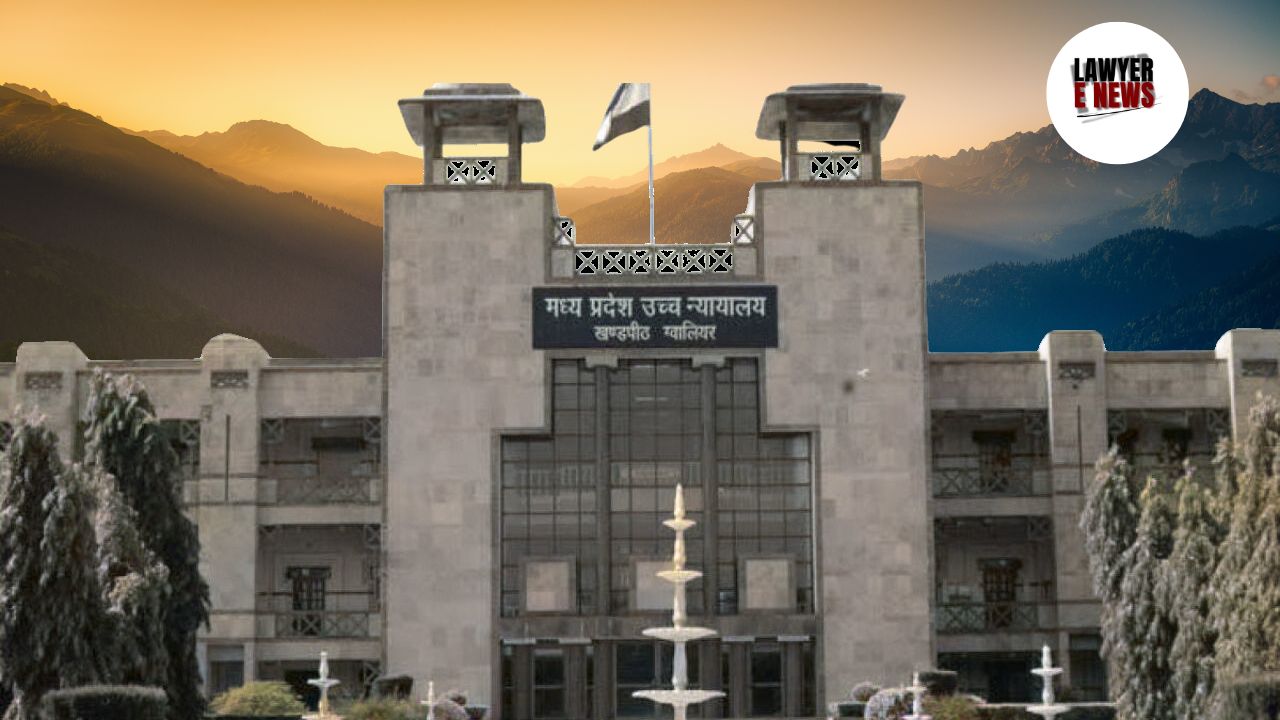-
by Admin
15 February 2026 5:35 AM



The High Court of Madhya Pradesh has upheld the decision of the Labour Court to award compensation in lieu of reinstatement to a daily-wage worker whose termination was deemed illegal. The judgment delivered by Justice Gurpal Singh Ahluwalia emphasized that reinstatement is not always the automatic remedy in cases of wrongful termination, especially for daily-wage workers.
Mohd. Majid Khan, the petitioner, was employed as a driver on a daily-wage basis by the Nagar Palika Nigam, Bhopal, starting from May 28, 2006. His services were terminated verbally on February 5, 2010. Khan challenged his termination in the Labour Court, which found the termination to be in violation of Section 25(f) of the Industrial Disputes Act, 1947. However, instead of ordering reinstatement, the Labour Court awarded Khan a compensation of Rs. 50,000. Dissatisfied with this decision, Khan filed a writ petition seeking reinstatement with back wages from February 6, 2010.
Justice Ahluwalia referenced several Supreme Court judgments to support the view that compensation can be an appropriate remedy over reinstatement in cases involving daily-wage workers. The court highlighted the Supreme Court’s stance in cases such as Deputy Executive Engineer v. Kuberbhai Kanjibhai and Ram Manohar Lohia Joint Hospital v. Munna Prasad Saini, which emphasize that reinstatement is not a mechanical right and may not be suitable in all circumstances, particularly for workers without regular employment status.
The court underscored that while the petitioner’s termination was illegal due to procedural non-compliance, reinstatement is not necessarily the most just remedy. Citing the case of Bharat Sanchar Nigam Limited v. Bhurumal, Justice Ahluwalia noted, “In such cases, reinstatement should be the rule and only in exceptional cases for the reasons stated to be in writing, such a relief can be denied.” The rationale is that daily-wage workers, even if reinstated, have no guarantee of regularization and can be terminated again with due compensation, rendering reinstatement an ineffective remedy.
The court reiterated the Supreme Court's viewpoint from the State of Karnataka v. Umadevi case, stressing that regularization of employment cannot be claimed merely because the initial termination was illegal. Reinstatement without the possibility of regularization would not necessarily provide a long-term solution for the worker.
Justice Ahluwalia remarked, “An employee cannot seek confirmation merely because his termination was illegal. Even if an employee is reinstated, still the employer can terminate his services by making payment of retrenchment compensation as provided under the Industrial Disputes Act.”
The Madhya Pradesh High Court's decision reinforces the principle that compensation is a viable alternative to reinstatement in cases of wrongful termination of daily-wage workers. This judgment underscores the judiciary's balanced approach in addressing employment disputes, considering both the legal framework and the practical implications for both employers and employees. The ruling is significant for future cases involving similar disputes, ensuring that justice is served in a manner that aligns with the evolving judicial principles.
Date of Decision: May 28, 2024
Mohd. Majid Khan v. The State of Madhya Pradesh & Anr.
